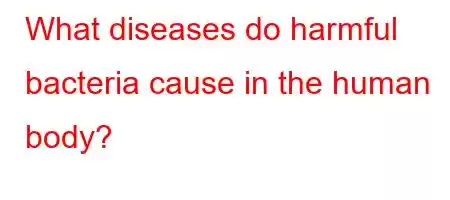Object What diseases do harmful bacteria cause in the human body?
Contents
What diseases do harmful bacteria cause in the human body?
Bacterial Diseases
B. cereus Food Poisoning : Campylobacteriosis: Caused by Bacteria: Campylobacter jejuni. Botulism: Causative Bacteria: Clostridium botulinum. C. Perfringens Food Poisoning : Intestinal cryptosporidiosis : Causative Bacteria: Cryptosporidium. Cyclosporiasis : E. Hemorrhagic colitis or E.Which of the following do bacteria need to reproduce?
Mandatory aerobes need oxygen to reproduce; Incubation in the aerobic atmosphere or an aerobic incubator containing carbon dioxide provides the necessary oxygen for them to multiply.
What is the ideal bacterial growth temperature in degrees?
b) Warm-loving (mesophilic) microbes: These microbes are generally They have the ability to develop and reproduce between 20-45 °C. Most of the microorganisms that cause disease in humans and animals are included in this group. Therefore, their optimal temperature is between 35 °C and 42 °C.
Features microorganisms have high nutritional demands.?
General characteristics Microorganisms have high nutritional requirements is generally less than in structured organisms. They easily change their metabolism according to changing environmental conditions. Microorganisms need water, energy source, nitrogen source, vitamins and minerals in order to develop and multiply.
So the existence of Microorganisms was not proven?The existence of micro-organisms could not be proven, observed and defined accurately and clearly until the end of the 17th century. This was because they lacked the most important tool for microbiology and bacteriology needed to substantiate all these early claims: the microscope.
So, what are the nutrient demands of microorganisms?
The nutrient demands of microorganisms are generally less than higher organisms. They easily change their metabolism according to changing environmental conditions. Microorganisms need water, energy source, nitrogen source, vitamins and minerals in order to develop and multiply. Ayşe Gürsoy
A microorganism (Greek mikrós) or a microscopic organism.?
A microorganism (Greek mikrós; “small” and ὀργανισμός, organismós; comes from living “organism”) .) or microbe (usually meaning too small to be seen with the naked eye) is a microscopic organism.
Read: 194


